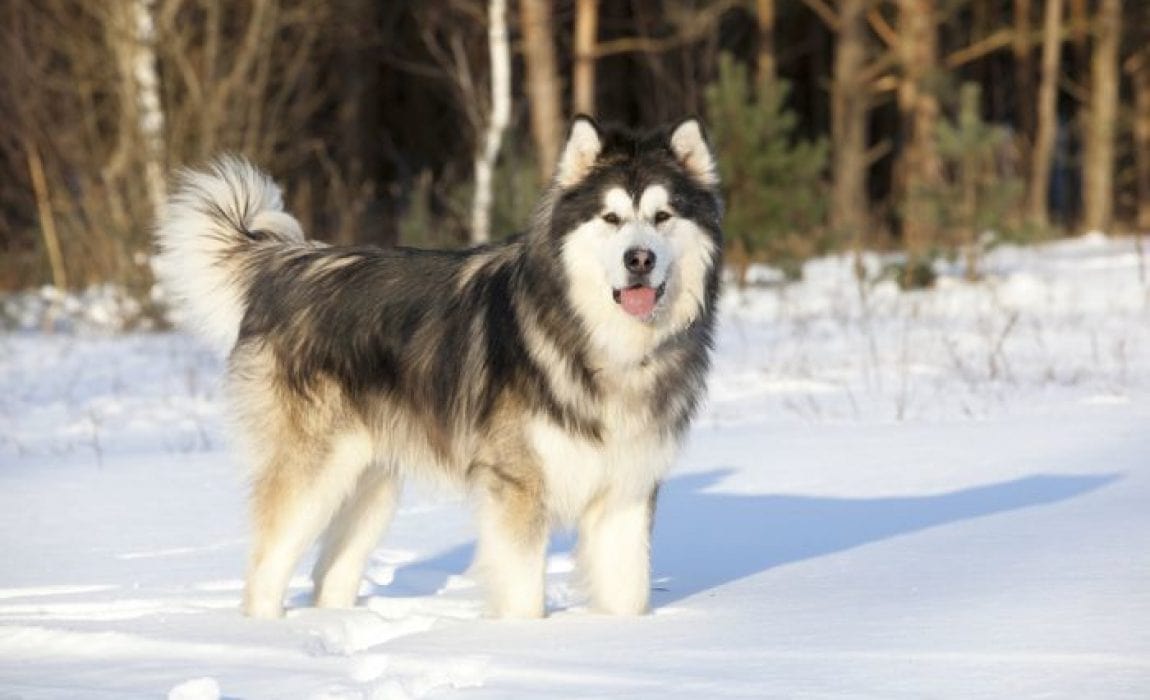As we head into the winter season, many of us are starting to prepare for colder temperatures and harsher weather. One thing that many of us may have yet to consider is how our dogs are going to get along with the colder weather.
This article will look at some of the best dog breeds for cold weather and help you decide which one is right for you and your pet!
What are the best dog breeds for cold weather?
A few breeds are known to be excellent choices for those living in colder climates, and one of those is the Siberian Husky. These dogs have thick coats that keep them warm and are also known for being very athletic.
Another good dog breed for cold weather is the Alaskan Malamute. These dogs are bred to live in cold climates, and their thick fur helps keep them warm.
Some other good options for dog breeds that are good in cold weather include the Boston Terrier, the border collie, and the Welsh Corgi. Choosing a dog that is comfortable in cold weather is essential, as it will likely spend a lot of time outside in these conditions.
How do they perform in cold weather?
Cold weather can be challenging for any pet, but some breeds of dogs are particularly prone to experiencing problems. The best dog breeds for cold weather generally have thick coats that keep them warm and are also typically good at regulating their body temperature.
Some of the best dog breeds for cold weather include Siberian huskies, German Shepherds, Akitas, and Alaskan malamutes. All of these breeds have thick fur that helps keep them warm in cold climates and are also hardy enough to handle colder temperatures outside. These dogs typically have a lot of energy.
They need plenty of exercise to stay healthy in cold climates, so it’s essential to ensure they have plenty of opportunities to run and play in chilly weather.
Some other good dog breeds for cold weather include bulldogs, Chihuahuas, shih tzus, English bulldogs, Boston terriers, Welsh corgis, and boxers.
Many of these breeds were bred specifically as indoor pets or working dogs used to living in cooler climates, so they are well-adapted to colder conditions.
However, all dog breeds should be given basic obedience training to know how to behave when cold outside and avoid getting lost or freezing overnight.
Which dog breeds are best for cold weather?
A few dog breeds are known for their toughness and ability to handle cold weather well. These breeds include the Siberian Husky, Alaskan Malamute, Irish Setter, and Boston Terrier. While all of these breeds can be used in cold weather climates, they each have strengths and weaknesses.
The Siberian Husky is an excellent choice for those who want a tough breed that can handle colder climates well. They are amiable dogs and make great family pets. They do need lots of exercises, though, so if you live in a cold environment, you may have better choices.
The Alaskan Malamute is another good option for those who want a breed that can handle colder climates well. They are also amiable dogs and make great family pets. They need more exercise than the Siberian Husky, but they are very tolerant of cold weather conditions.
The Irish Setter is another breed known for its toughness and ability to handle cold weather well. They are also amiable dogs and make great family pets. Like the Alaskan Malamute, they need more exercise than most dog breeds, but they are less likely to become ill in cold weather than other dog breeds.
The Boston Terrier is one of the most popular dog breeds in the United States because of its versatility and ability to handle any weather condition. While Boston Terriers
What to watch out for when choosing a cold weather dog breed.
Many people think a dog breed is the best choice for their winter weather needs, but this is only sometimes the case. There are many different cold-weather dogs breeds out there, so it’s essential to research before deciding. Here are some things to watch out for when choosing a cold-weather dog breed:
First, ensure that the breed you’re interested in is suitable for cold climates. Many popular cold-weather dogs breeds like German Shepherds and Golden Retrievers are less well-suited to colder temperatures and will likely struggle in the winter weather. Instead, consider looking for a smaller breed or a breed that is specifically bred for cold climates, like Eskimos or huskies.
Second, be sure to get your animal vaccinated against common canine diseases like distemper and parvovirus. These diseases can be hazardous in colder climates and quickly kill a small dog or cat.
Also, make sure your pet has been adequately trained in basic obedience commands such as “sit,” “down,” and “stay.” This will help them stay safe in any environment and avoid getting lost or in trouble.


